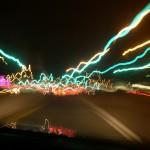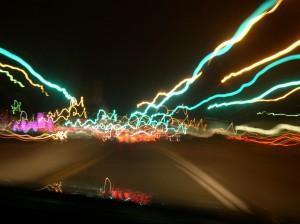

In Missouri, the legal blood alcohol concentration (BAC) level is 0.08. The limit is determined by the individual state. In Illinois, it is 0.08 as well which is normal for most states in the union. In the last few years, many safety experts are questioning if .08 is low enough.
A recent study by the University of California Regarding National Drinking & Driving
According to a recent study done by the University of California, even "minimally buzzed" driving are more often to blame for fatal car accident than the sober drivers with which they collide. The study examined 570,731 fatal collisions from 1994-2011. The researchers led by David Phillips used the U.S. Fatality Analysis Reporting System (FARS) database for study because it is nationally comprehensive and reports blood alcohol content in increments of .01 percent. They focused primarily on "buzzed" drivers with BAC of 0.01 to 0.07 percent as "minimally buzzed".
Phillips and his co-authors found that drivers with a BAC 0.01 percent while well below the U.S. legal limit of .08 are 46 percent more likely to be officially and solely blamed by accident investigators than the sober drivers they collide with. The authors also found no "threshold effect-no sudden transition from blameless to blamed" at the legal limit. In fact, "blame increases steadily and smoothly from BAC 0.01 to 0.24 percent.
Despite this evidence, buzzed drivers are not often punished more severely than their sober counterparts. In general, Phillips said that police, judges and the public at large treat BAC 0.08 percent as "a sharp, definitive, meaningful boundary" and do not impose more severe penalties on those below the legal limit. Phillips said, "The law should reflect what official accident investigators are seeing".
Findings:
According to Phillips, the findings are unequivocal. Phillips said, "We find no safe combination of drinking and driving--no point at which it is harmless to consume alcohol and get behind the wheel of a car. Our data support both the National Highway Traffic Safety Administration's campaign that "Buzzed driving is drunk driving' and the recommendation made by the National Transportation Safety Board to reduce the legal limit to BAC of 0.05. In fact, our data provide support for yet greater reductions in the legal BAC".
According to Phillips, the effects of buzzed drinking specifically is not an area that has been as thoroughly researched as his group has done. In further reading, I read another Science Daily article about perception while under the influence that was done in Missouri. In a study due for publication this month, researchers discuss that "Alcohol may alter how we perceive a number of things," said Dennis M. McCarthy, associate professor at the University of Missouri. "For example, we know that alcohol can impair someone's judgment, decrease their self-control, and alter what elements of their situation they attend to. Based on this, we are interested in examining whether alcohol can alter how the risks associated with impaired driving are appraised". In specific, they discuss that research has generally focused on the risk analysis of drunk driving on sober individuals, but generally when someone is making the decision to drink and drive---they are not sober.
Study Done in Missouri
"It is important to examine how people make decision in the context in which the decisions are made. For example, if we want to understand how people make decision under stress, we know it is important to study their decision-making process while stressed. Similarly, the decision to get behind the wheel while intoxicated is ultimately made while intoxicated" said McCarthy. McCarthy and his colleagues recruited 82 young adults (43 men, 39 women) from a large, Midwestern university and its surround communities to attend two counterbalanced laboratory sessions in which participants consumed moderate doses of alcohol and reported the danger of driving and their willingness to drive at multiple points across the breath alcohol concentration (BAC) curve. Of course, there was a control group that did not consume alcohol and still appraised the dangerousness of drinking and driving, hypothetically.
Finding: We do not use the same good judgment when "buzzed" as when "sober"
"We found that when intoxicated, a person's appraisal of the risk of driving in that state can play an important role in their choice of whether to drive over and above their sober thoughts about drinking and driving. We think this is important because it seems that people have gotten the message drinking and driving is dangerous, and most people, when they are sober, honestly think it is too dangerous to do. However, those same individual may not apply this judgment when it counts the most--when they are currently intoxicated and need to decide whether it is safe to for them to drive in that moment", said McCarthy.
Furthermore, "evidence suggests that public information/awareness campaigns have only very modest effects on drinking and driving, and of the campaigns that actually are effective many include additional elements like increased law enforcement," said Johnson, fellow researcher.
It's a Choice
So, it would seem from the research that in fact, we do not use as good of judgment when we drink as when we are sober. Many think that is stating the obvious, yet I cannot tell you how many people I hear argue it! They will argue they drive very effectively even though they might fail a BAC test. However, I see everyday to the contrary----I see the victims of car accidents. Not just victims of drunk driving but victims of distracted driving and inattentiveness. What is so tragic and upsetting about drunk driving accidents is that they are COMPLETELY PREVENTABLE. No one says you should not drink, just Not drink and drive.
If you have been the victim of drunk driving accident and are injured or have lost a loved one, it is pretty assured you will need legal representation. Most people think you only need representation if you were the drunk driver. However, even if a drunk driver is prosecuted and sentenced, there is not guarantee that the victim of the accident will receive any compensation for their injuries, property damage, pain and suffering unless they retain legal counsel and file a personal injury claim or a
wrongful death claim. At The Cagle Law Firm, we take drinking and driving very seriously. Drinking and driving is a CHOICE whether one makes it sober or drunk. We all must take responsibility for our choices, good or bad. Call 1(800) 685-3302 or locally (314) 276-1681 for your free consultation.
Source: Drinking and Driving: Unsafe at any level, study concludes. Science Daily.
University of California, San Diego. (2014, January 16). Drinking and driving: Unsafe at any level, study concludes. Science Daily. Retrieved February 3, 2014 from www.sciencedaily.com/releases/2014/01/140116084842.html
Source:
Sober drinking knowledge fails "in the moment" of intoxication. David H. Morris, Hayley R. Treloar, Maria E. Niculete, Denis M. McCarthy.
Perceived Danger While Intoxicated Uniquely Contributes to Driving After Drinking.
Alcoholism: Clinical and Experimental Research, 2013; DOI:
10.1111/acer.12252

 In Missouri, the legal blood alcohol concentration (BAC) level is 0.08. The limit is determined by the individual state. In Illinois, it is 0.08 as well which is normal for most states in the union. In the last few years, many safety experts are questioning if .08 is low enough.
In Missouri, the legal blood alcohol concentration (BAC) level is 0.08. The limit is determined by the individual state. In Illinois, it is 0.08 as well which is normal for most states in the union. In the last few years, many safety experts are questioning if .08 is low enough.
